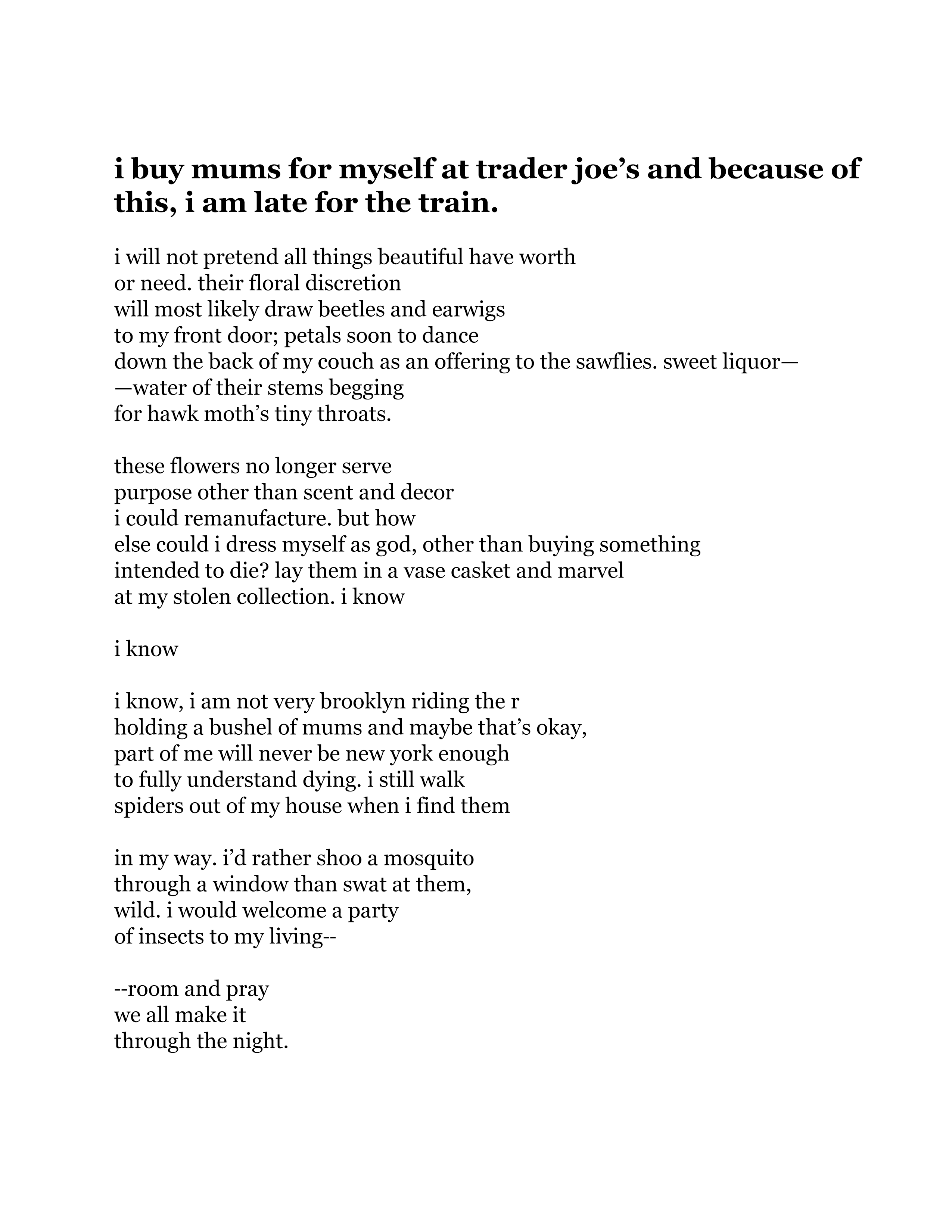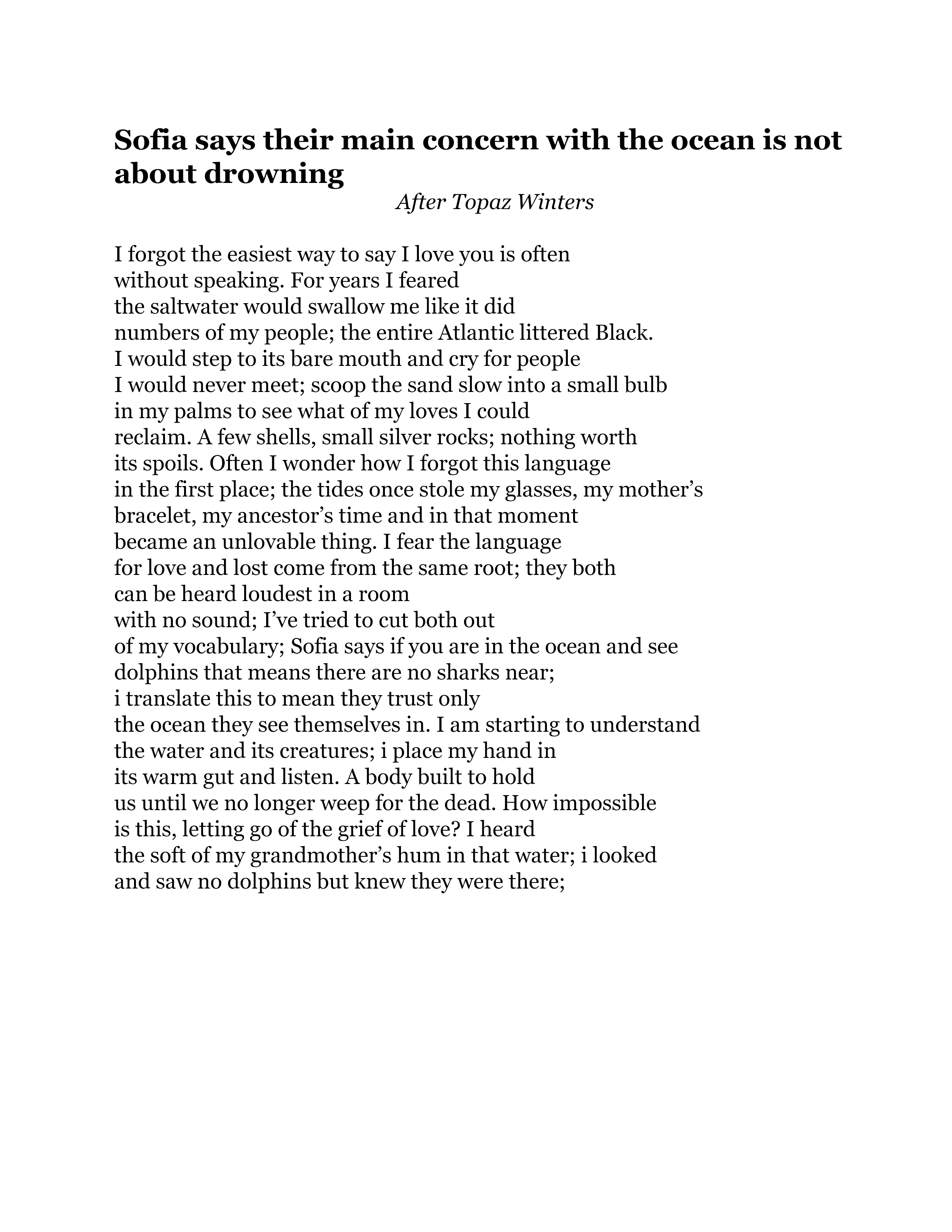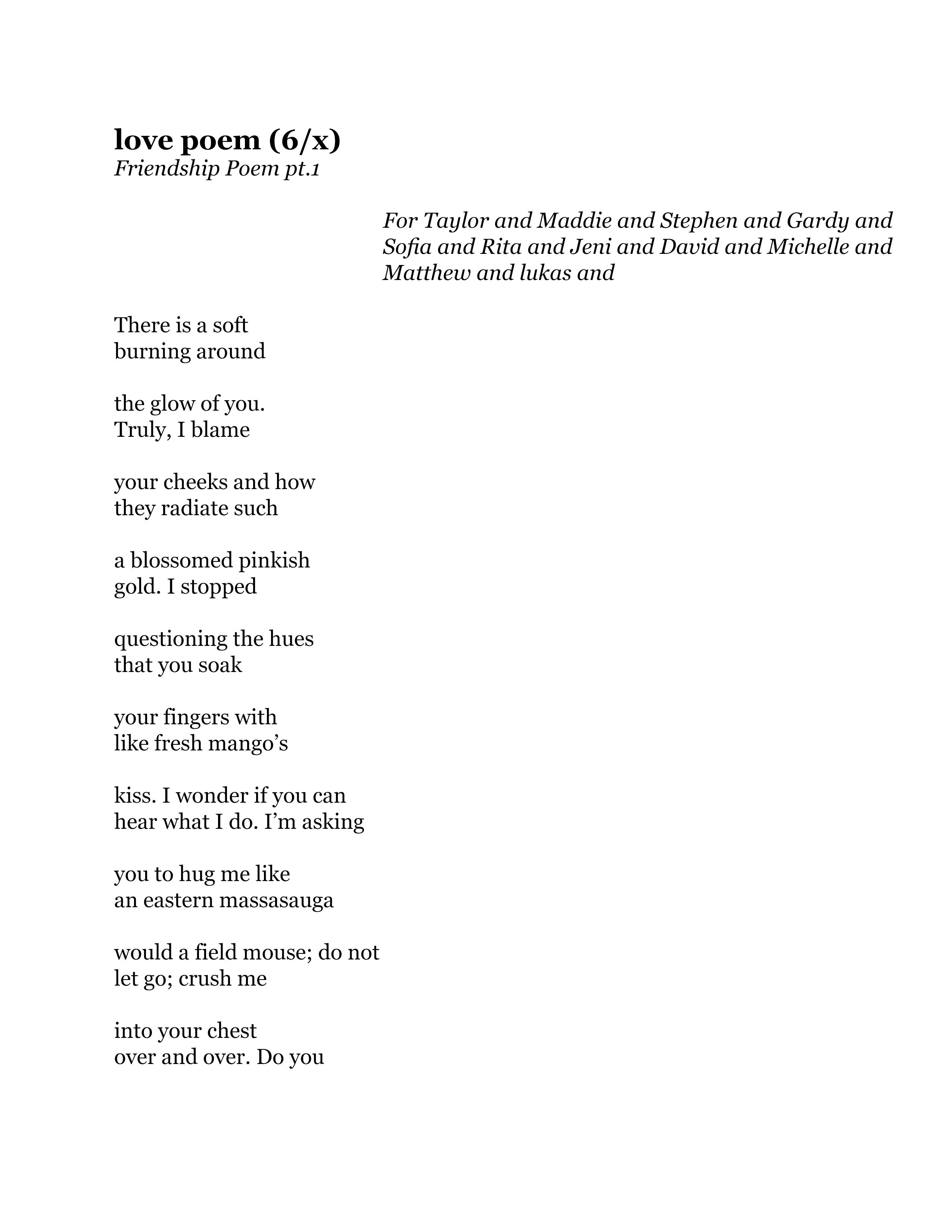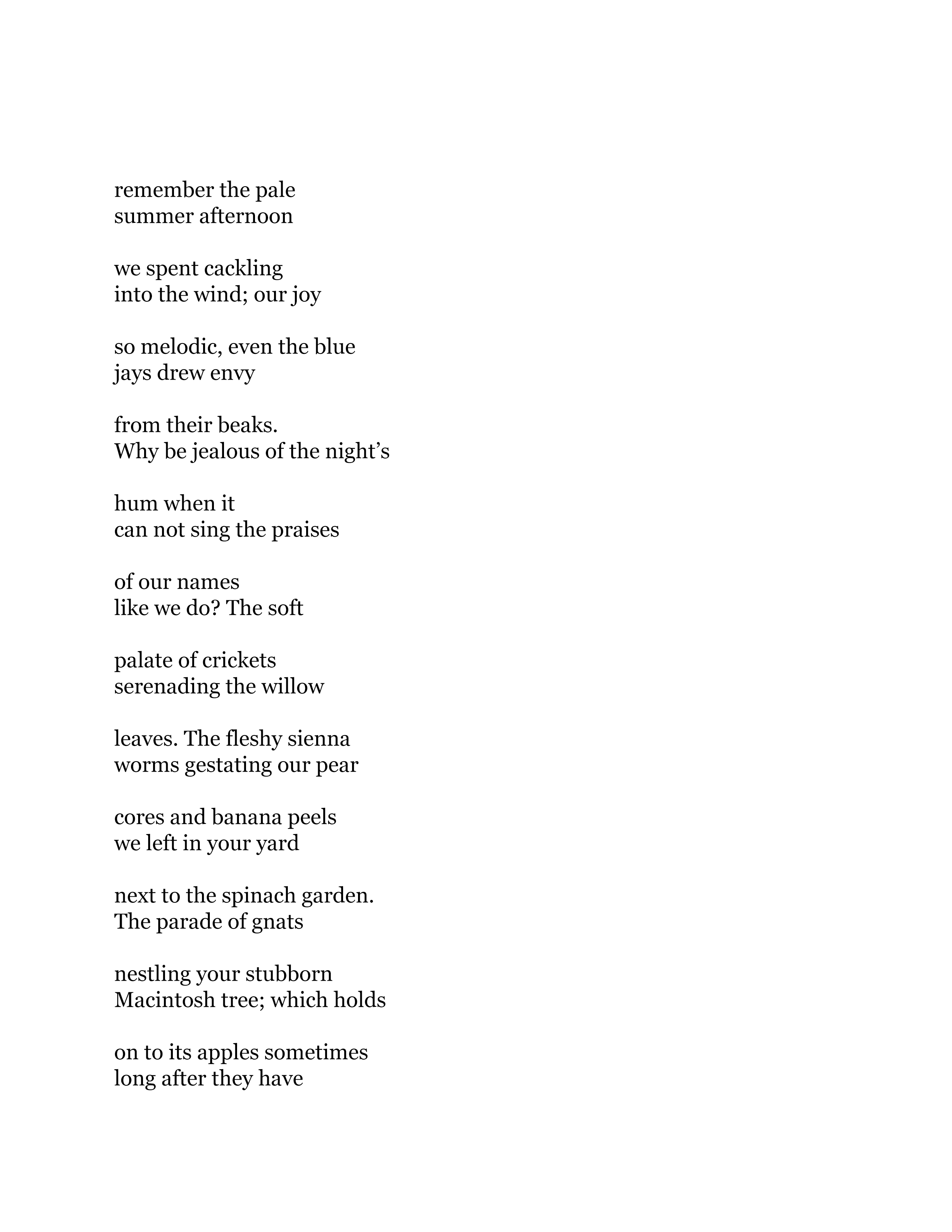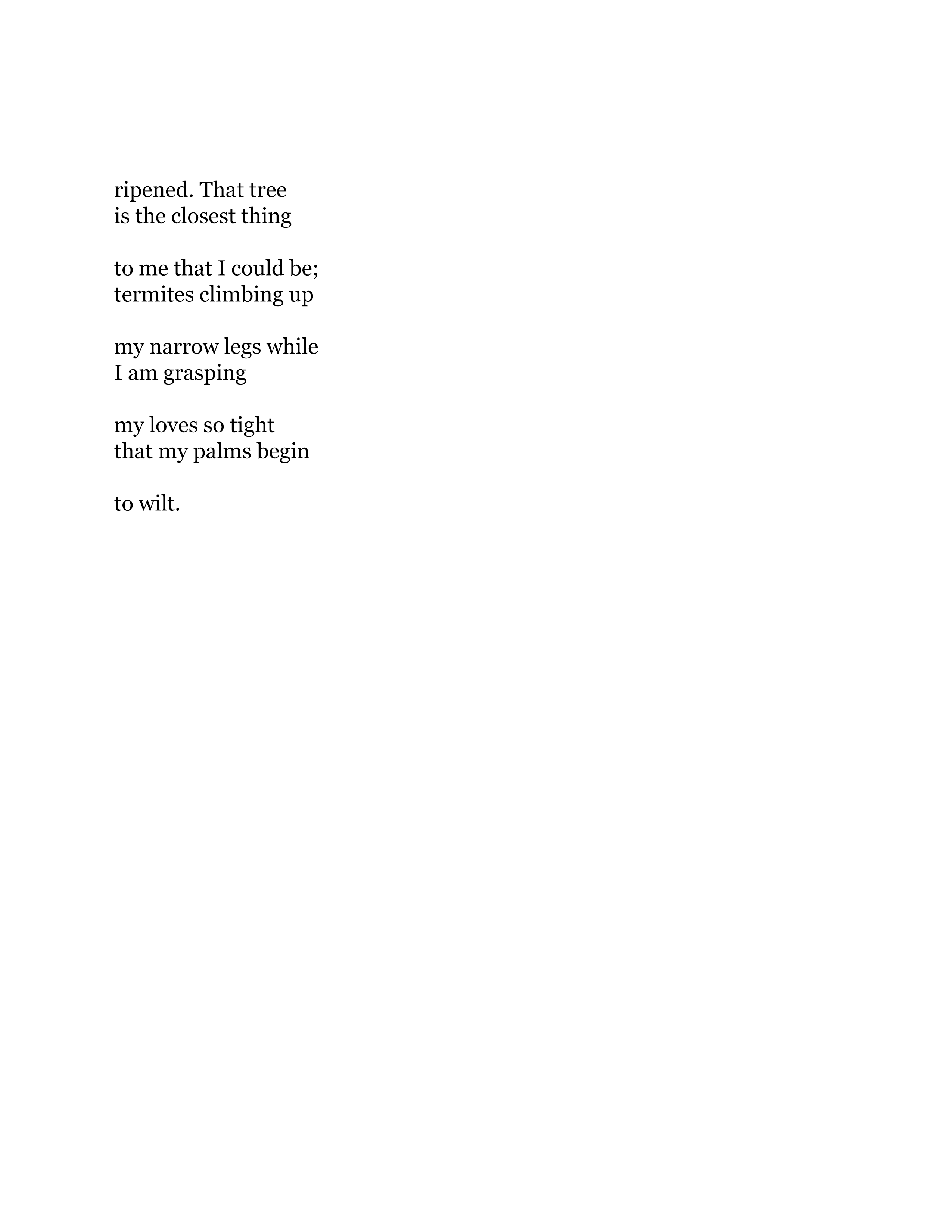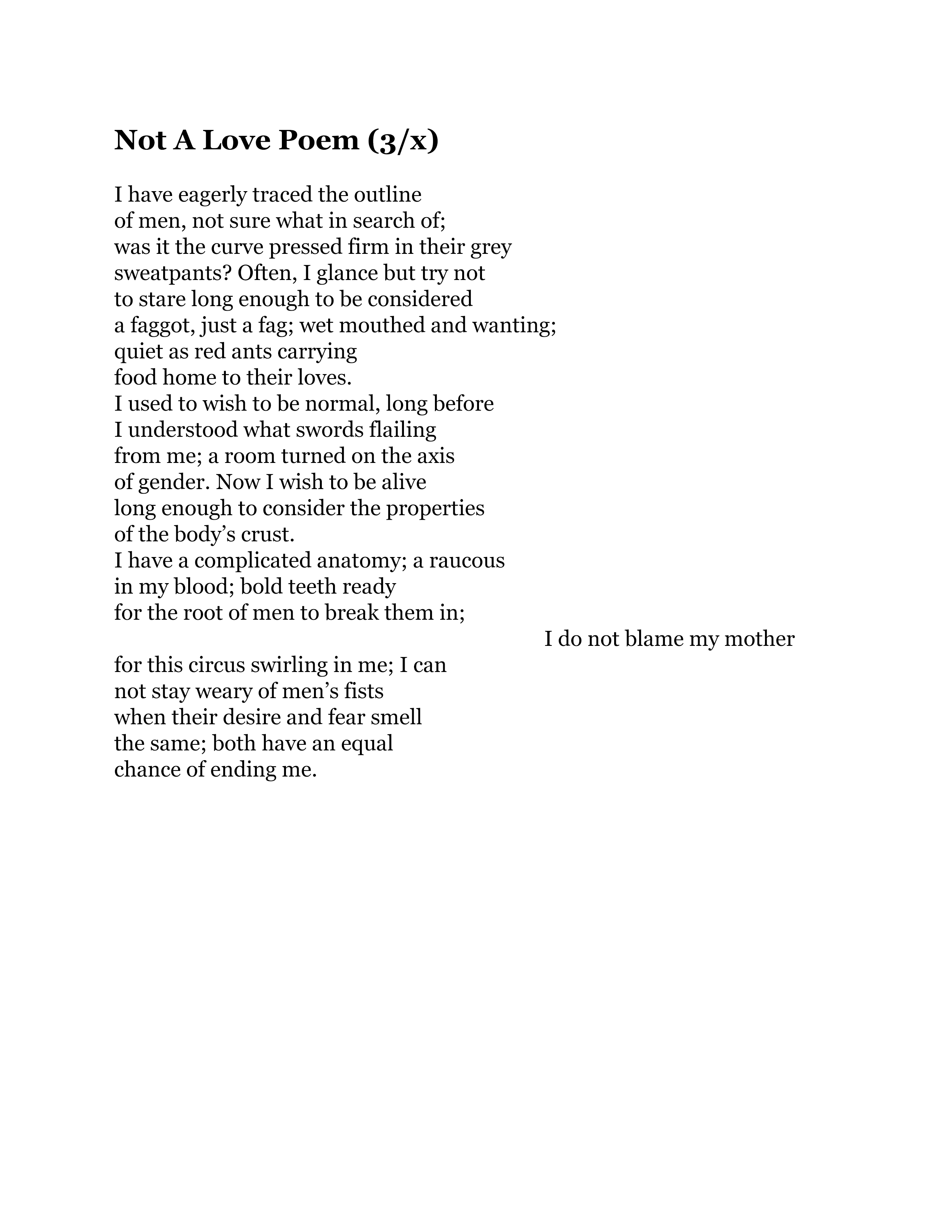4 poems by jason b. crawford
1 essay by Gavin Gao,
on the poems of jason b. crawford
“I forgot the easiest way to say I love you is often / without speaking,” thus begins the second poem in a confessional manner reminiscent of an entry in a private journal. Moments of emotional honesty and vulnerability recur throughout the poem as the speaker freely admits their fears and the things that elude their memory, constantly gesturing toward the inadequacy and precarity of language as a way of communicating intimacy. It makes sense that the speaker’s central fear is that “the language for love and lost come from the same root:” love is always at risk of being obliterated by the forces that engender loss; the etymological proximity of “love” and “lost” drives home the reality of that risk as the slippery boundary between the two words means that you cannot invoke one concept without summoning the other.
The poem’s lexicon of conquest and violence, exemplified by such words as “swallow,” “spoils,” and “cut,” is countervailed by a sensuality embodied in the diction, syntax and soundscape elsewhere in the poem: the tenderness of the palms “[scooping] the sand slow into a small bulb,” the sonic lushness of the alternating long and short vowel sounds, and the undulating, wavelike rhythm of the lines that calls to mind the body’s inhalations and exhalations. Even the ocean with its staggering capacity for destruction is rendered into flesh by the speaker (“I would step into its bare mouth,” “I place my hand in its warm gut”), its threat curtailed, having been made vulnerable and tender just like the body. Thus, the poem not only becomes a record of the speaker’s journey to comprehending the history of injustice that they have inherited but also bears witness to the reclamation of the language of sensuality and love.
There is an endearing postmodern randomness to the title of the first poem, which foregrounds a pedestrian moment and namechecks a major grocery chain, framing the poem in a context of modern life saturated with consumerist indulgence. The poem’s speaker projects their notions of the divine onto ordinary lifeforms: flowers acquire sentience and exercise “discretion;” “the sawflies” are tiny deities to which the petals “dance” as “an offering.” In anthropomorphizing these nonhuman entities and portraying them as performers of rituals in a secular age, the lyric “I” plays the role of a creator god to whom these entities are replaceable and serve no other purpose than as a canvas for the speaker’s imagination.
The speaker is cognizant of the artifice of such posturing (“how else could i dress as god”) and the ethical problem of “buying something / intended to die” that has been severed from its natural environment for one’s enjoyment (“lay them in a vase casket and marvel / at my stolen collection”). The very word “stolen” invokes the violence of colonialism whose legacy the previous poem contends with.
How does one live unselfishly in an extractive, consumption-driven society? Or better, how does one honor the life of those who are deemed expendable and will inevitably be harmed by our extractive economy? The speaker refuses to view the death of another being—however insignificant in form—as understandable, not in the way capitalism wants them to (“part of me will never be new york enough / to fully understand dying”). The poem ends with a promise and a prayer: “i would welcome a party / of insects to my living— / —-room and pray / we all make it / through the night.” The dash and stanza break after “my living” enact a moment of deliberation, as the speaker checks their extractive tendency before allowing themselves to coalesce with the others to form an ultimate unified “we.”

